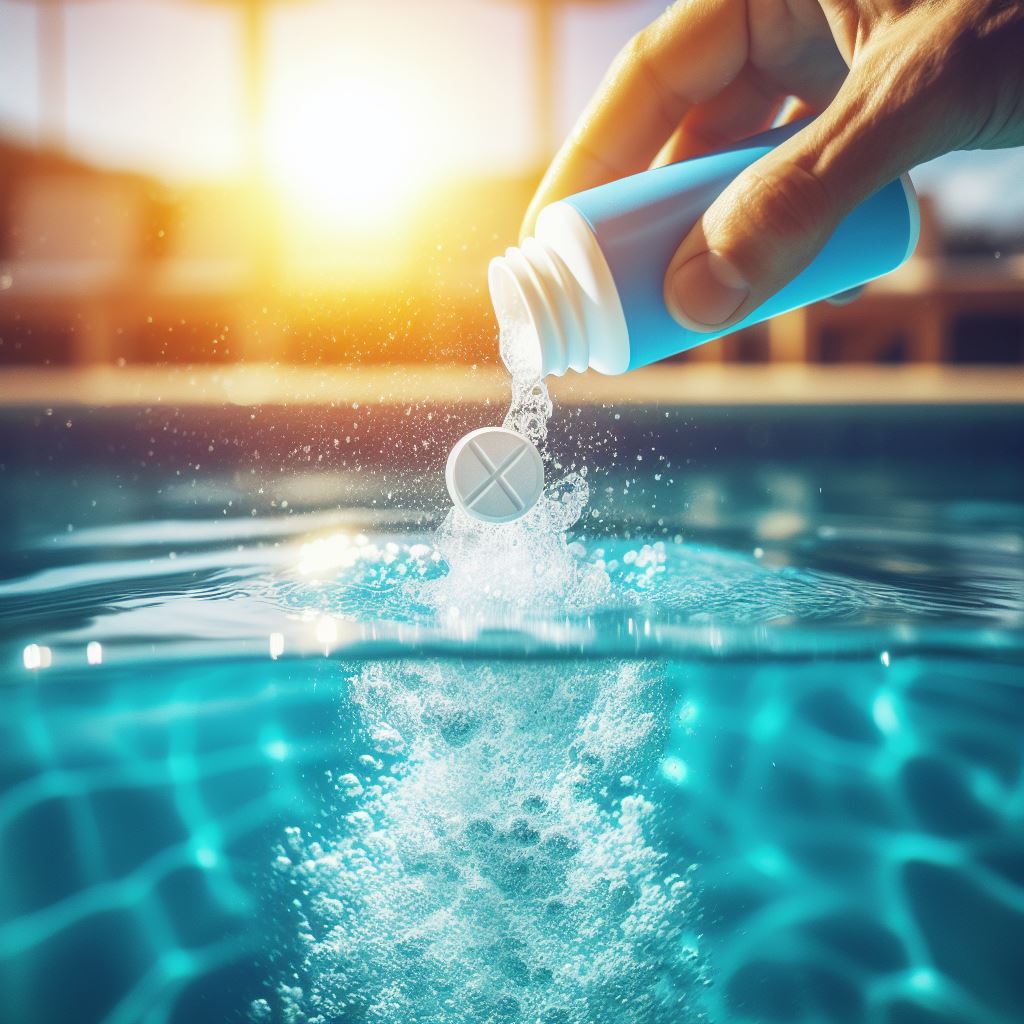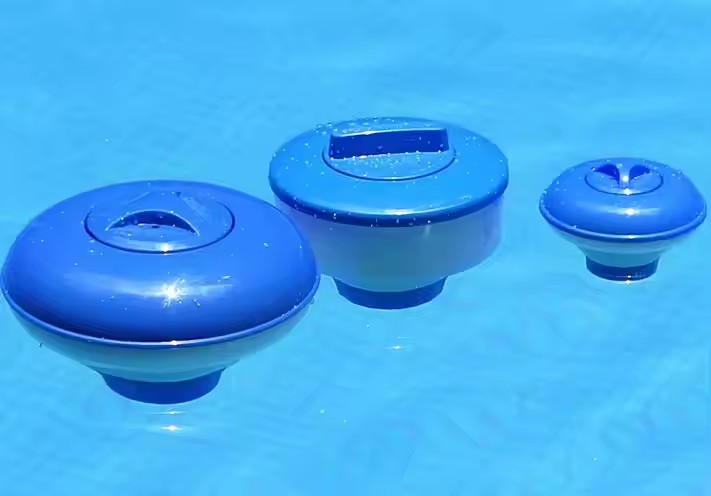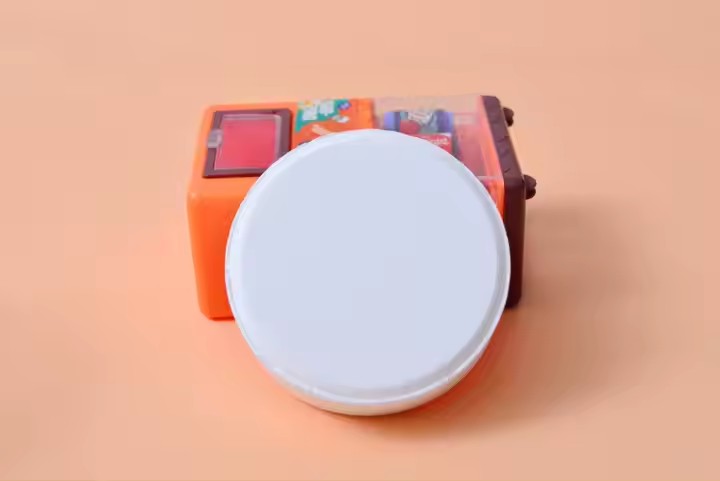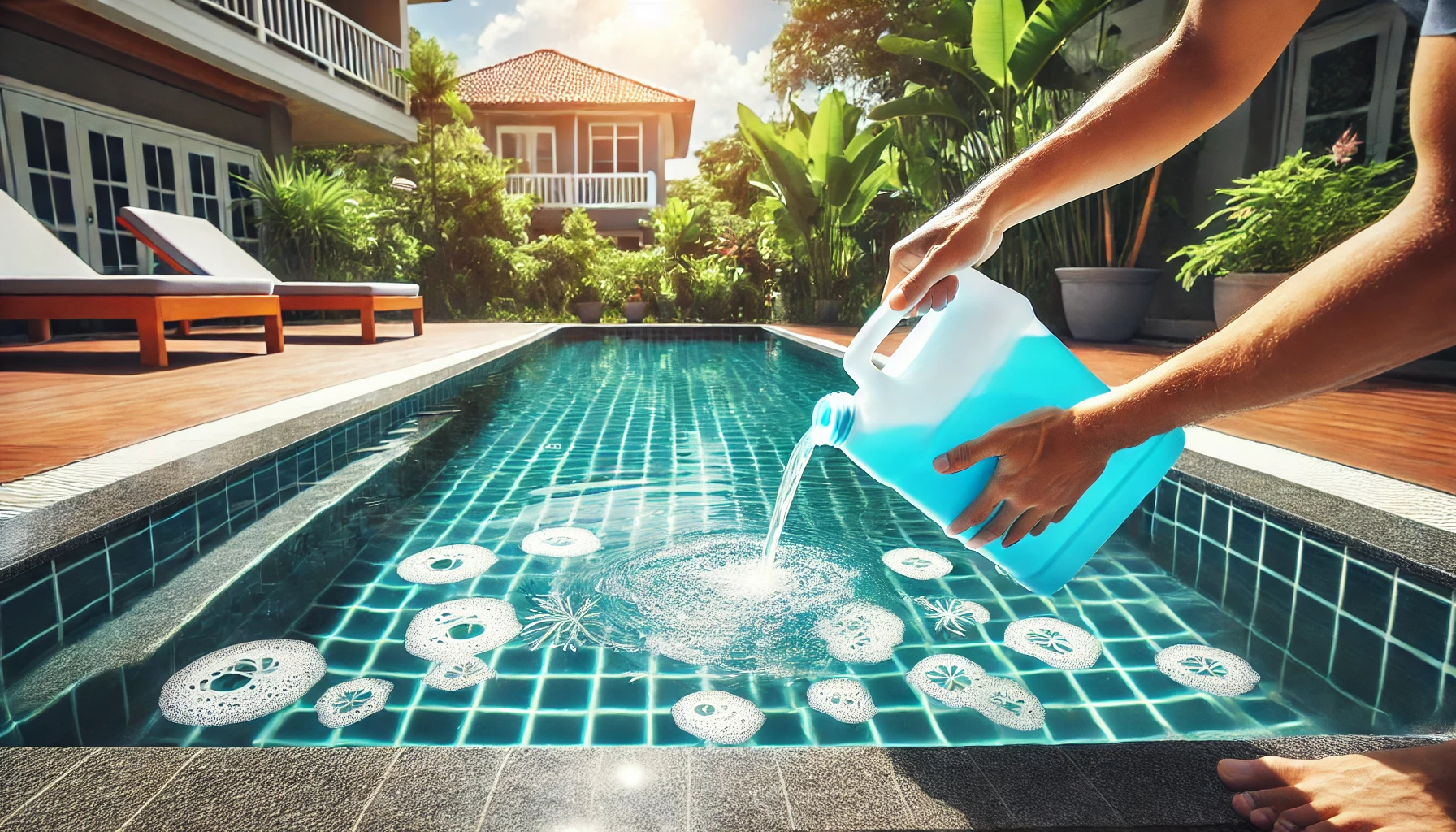As a pool owner, you have to make many important choices. Chlorine or saltwater? Manual vacuum or robotic pool cleaner? Inflatable dolphin or flamingo? There’s no single correct answer—it often comes down to personal preference. Today, let’s explore another crucial choice: liquid chlorine vs. chlorine tablets. Understanding the pros and cons of each type will help you choose the most suitable chlorine for your pool.

The Role and Importance of Chlorine
Chlorine is the most commonly used pool disinfectant, keeping the water clean and preventing the growth of contaminants like algae. Regardless of its form, chlorine is cost-effective, highly effective, and easy to use.
How Chlorine Works
Chlorine works by breaking down the cell walls of bacteria and algae, then oxidizing them, which kills or deactivates them. As chlorine completes this process, it breaks down and becomes less effective, which is why you need to regularly add chlorine to your pool.
Both liquid and tablet forms of chlorine are equally effective at purifying your pool.
Liquid Chlorine
Liquid chlorine is very straightforward to use—you simply pour it directly into the pool. It is made by bubbling gaseous chlorine through caustic soda. Its pH is quite high, around 13, making it primarily suitable for large commercial or high-traffic pools where it can be added in bulk, even in 55-gallon drums.
Pros and Cons of Liquid Chlorine
Pros:
- Ease of Use: Simply pour it into the pool without any extra steps.
- Lower Cost: Generally cheaper per unit than chlorine tablets.
Cons:
- High pH: Requires more acid to neutralize the high pH level in the water.
- Corrosiveness: Can damage pool walls or other surfaces if not handled carefully.
- Storage Issues: Requires significant storage space and must be stored safely.
Chlorine Tablets
Chlorine tablets, also known as granular chlorine, are the most common form used by private pool owners. Though slightly more expensive than liquid chlorine, they are just as convenient to use. The pH of chlorine tablets is lower, meaning you don’t need to use as much acid to maintain proper water balance.
Types of Chlorine Tablets
There are two main types of chlorine tablets:
Dichlor (Dichloro-S-Triazinetrione Sodium):
Dichlor has a lower pH of around 7, meaning you don’t need much acid to balance the water. It dissolves quickly and starts working on contaminants immediately, containing about 62% actual chlorine. While more stable and expensive, it can also be used as a pool shock treatment.
Trichlor (Trichloroisocyanuric Acid):
Trichlor contains a higher chlorine content of around 90%, but its pH is much lower, around 3. Trichlor dissolves slowly and is usually pressed into tablets for use in floaters or automatic feeders. Its high chlorine content means less frequent dosing, but the slow dissolve rate provides longer-lasting disinfection.
Pros and Cons of Chlorine Tablets
Pros:
- Convenience: Can be placed in floaters or automatic feeders for continuous release.
- Lower pH: Has less impact on the water’s pH balance.
- Efficiency: Each tablet contains a high concentration of chlorine, offering effective disinfection.
Cons:
- Higher Cost: Generally more expensive per unit than liquid chlorine.
- Storage Needs: Must be stored properly to avoid moisture and heat.
Which Chlorine is Right for You?
Usage Environment and Needs
- Large Commercial or Public Pools: Due to high usage frequency, the bulk addition and lower cost of liquid chlorine make it more advantageous.
- Small Private Pools: The convenience and continuous disinfection effect of chlorine tablets make them a better choice.
Water Quality and Maintenance
- Water Adjustment: Liquid chlorine requires additional acid to neutralize its high pH, increasing maintenance complexity. Chlorine tablets, with their lower pH, have a minimal impact on water balance, making maintenance easier.
- Regular Maintenance: If you want to reduce the hassle of frequent chlorine addition, chlorine tablets can be used with automatic feeders for longer-lasting disinfection, reducing daily maintenance efforts.
Usage Precautions
Whether you choose liquid chlorine or chlorine tablets, safe usage and storage are essential:
- Storage Environment: Store in a cool, dry, and well-ventilated place, away from children and pets.
- Protective Measures: Wear gloves and goggles when handling chlorine products to avoid direct contact with skin and eyes.
- Follow Instructions: Adhere strictly to product instructions to avoid overuse, which can lead to water quality issues or damage to pool equipment.
Conclusion
Choosing between liquid chlorine and chlorine tablets depends on your pool type, usage frequency, and personal maintenance habits. Liquid chlorine is suitable for large or high-traffic pools, being cost-effective but requiring additional water quality adjustment. Chlorine tablets, due to their convenience and continuous disinfection effect, are ideal for private pools. Regardless of the chlorine type chosen, ensure safe usage and regular maintenance to keep your pool water clean and enjoy a pleasant swimming experience.


